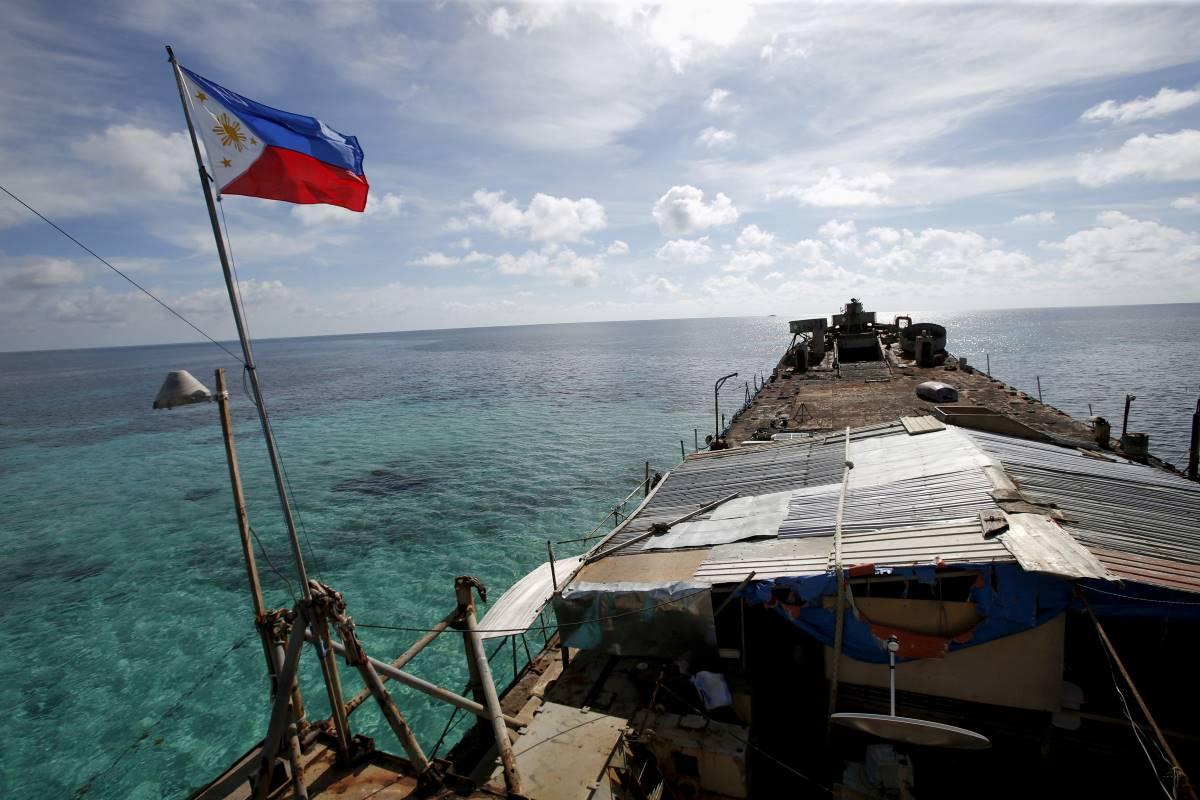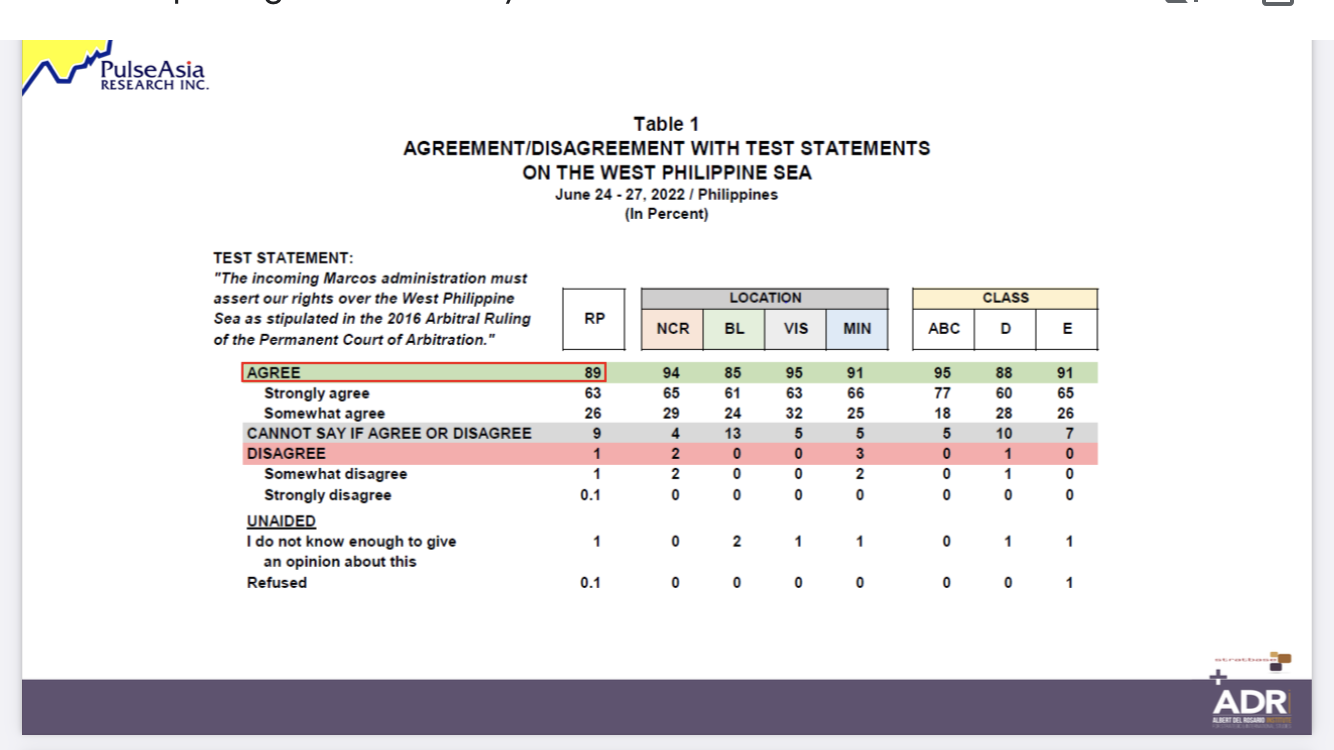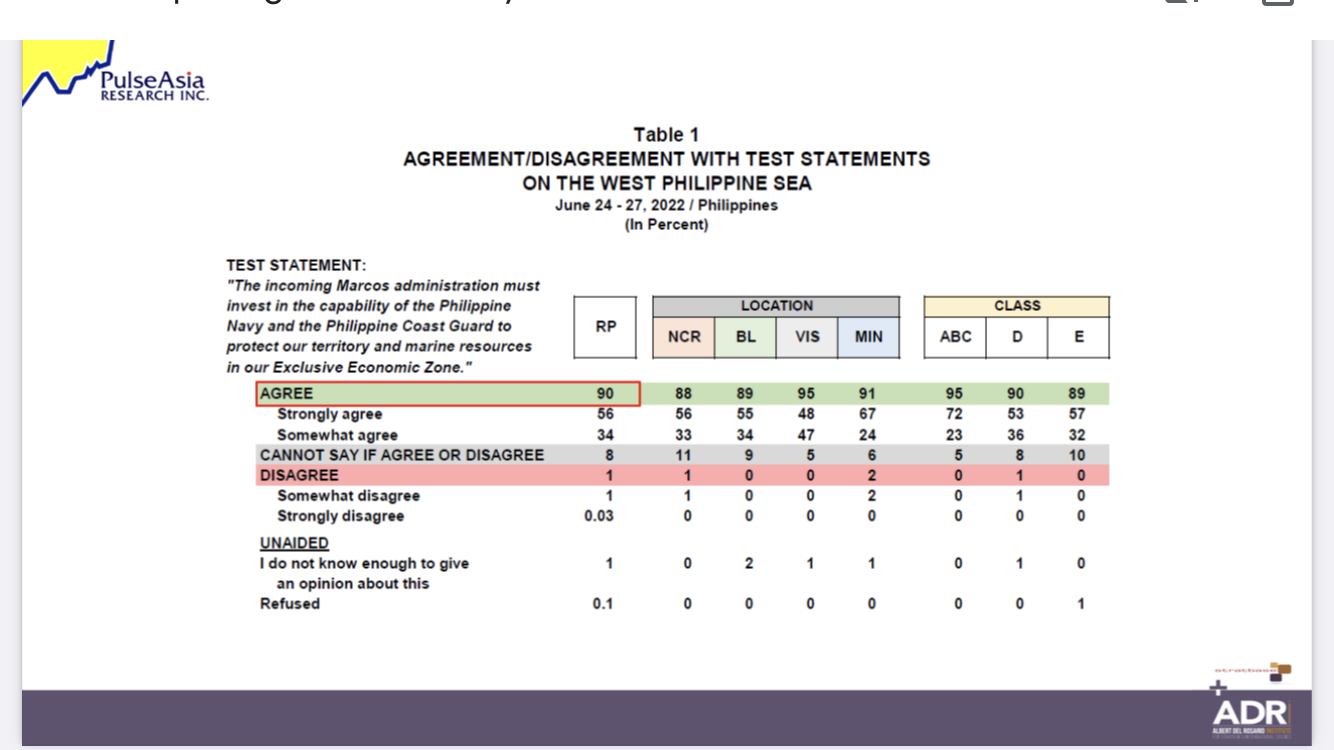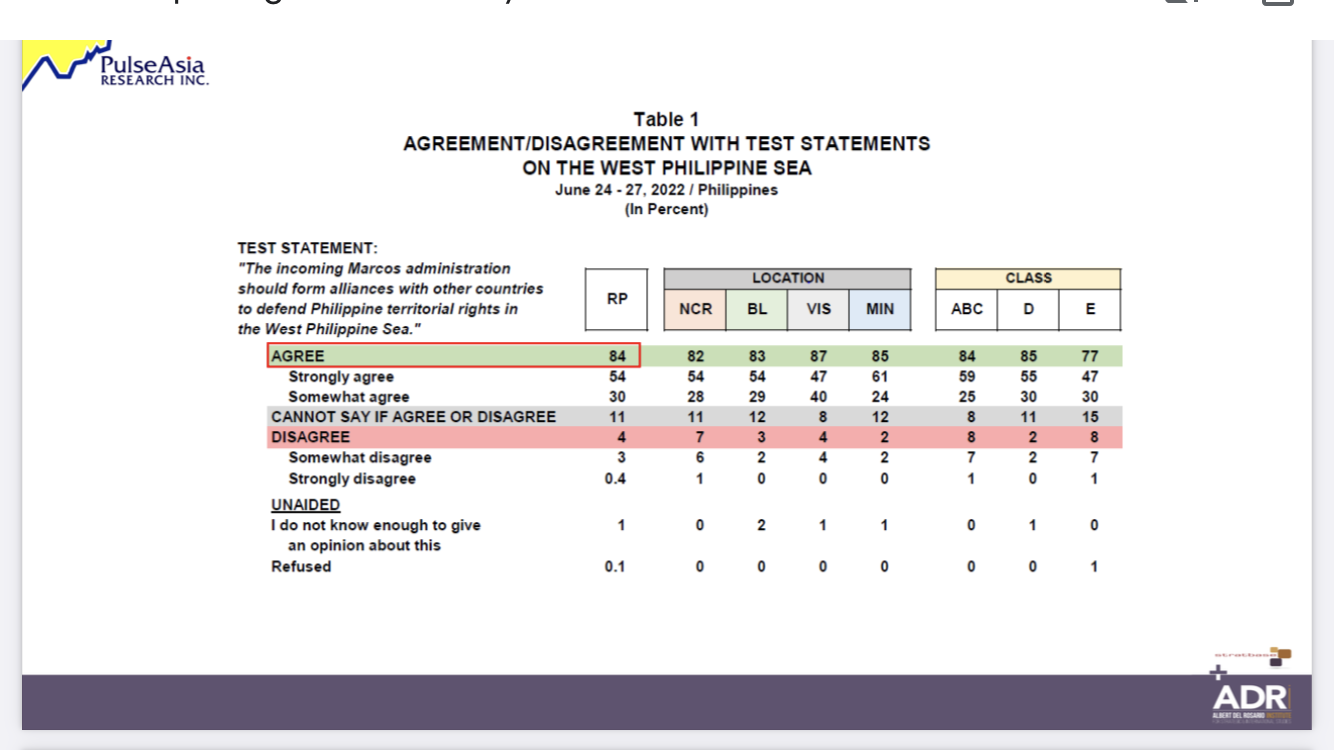89% of Pinoys say Marcos must assert rights in South China Sea — Pulse Asia

Six years after the Philippines’ landmark win against China before an international tribunal, a huge majority of Filipinos said President Ferdinand Marcos Jr. must assert the country’s rights in the South China Sea amid continuing reports of Chinese aggression in areas within Philippine waters and exclusive economic zones.
A survey conducted by Pulse Asia from June 24-27 showed 89% of Filipinos across the country said Marcos should affirm its rights in the waters as stipulated in the 2016 arbitral tribunal ruling.
This was strongly supported by all socio-economic classes in all regions, with 95% from class ABC, 88% class D and 91% from class E.
Nine percent cannot say they agree or disagree, while only 1% disagreed.
"It reflects the Filipino people’s desire for the new government to assert our rights based on our arbitral victory in 2016," said Prof. Dindo Manhit, Stratbase-ADRI president.
The survey, commissioned by Stratbase-ADR Institute, had a sample size of 1,200 respondents with +/-2.8 error margin. The findings were released Tuesday during the Stratbase-ADRI Institute forum on the sixth anniversary of the arbitral tribunal’s ruling.

Manila has renamed parts of the waters that fall within its territory in the South China Sea as West Philippine Sea.
The survey also found that 90% of Filipinos from all socio-economic classes across all regions want the new administration to invest in the capability of the Philippine Navy and Philippine Coast Guard to protect the country’s territory and marine resources in its EEZ.
Only 1% disagreed, while 8% were undecided.

It also showed that 84% of Filipinos want the Marcos administration to form alliances with other countries to defend the Philippine territorial rights in the West Philippine Sea.

The Philippine government has opposed China’s expansive territorial claims in the strategic sea, challenging Beijing’s claim before an international arbitration body before the Permanent Court of Arbitration, which later on ruled in favor of Manila in a historic legal award in July 12, 2016. The case was filed by the administration of late President Benigno Aquino III.
In its decision, the Permanent Court of Arbitration in The Hague, Netherlands invalidated China’s massive claim over the South China Sea.
China has been criticized by many nations, led by the United States, for its rapidly expanding claim over the waters despite a commitment under a non-binding code of conduct it signed in 2002 with Southeast Asian nations that claimants will exercise restraint and stop new occupation in the South China Sea. Beijing also refused to recognize the ruling, calling it "ill-founded" and "naturally null and void."
China says it has “indisputable sovereignty” over the entire waters, where undersea gas deposits have been discovered in several areas, even as it overlaps with the territories of its Asian neighbors. Vietnam, Malaysia, Brunei and Taiwan are also claimants to the South China Sea.
On Tuesday, US Secretary of State Antony Blinken called on China to cease its provocative behavior and to bide by its obligations under international law as the Philippines commemorates its legal victory.
Other nations, such as Japan and Canada also expressed their support for the ruling and called for peaceful resolution of disputes.
Japanese Foreign Minister Hayashi Yoshimasa criticized China for continuing to ignore the ruling, saying this undermines the rule of law as a fundamental value of the international community.
“Japan renews its objection to maritime claims in the South China Sea that are inconsistent with UNCLOS and remains seriously concerned about the current situation. Furthermore, Japan reiterates its strong opposition to unilateral attempts to change the status quo by force or coercion,” Hayashi said, calling tribunal’s ruling “final” and “binding.”
Canada also expressed dismay over China’s “continued unwillingness to accept” the decision and its “ongoing coercive activities in the East and South China Seas.”
“The ruling continues to be a significant milestone and a useful basis for peacefully resolving disputes in the region,” it said in a statement. — RSJ, GMA News




